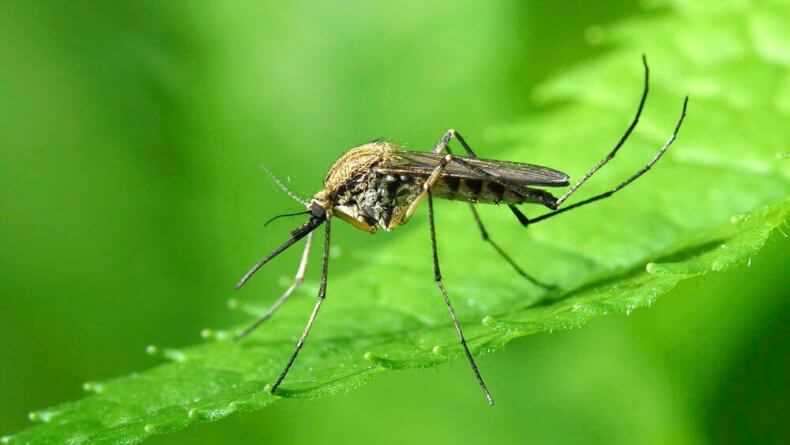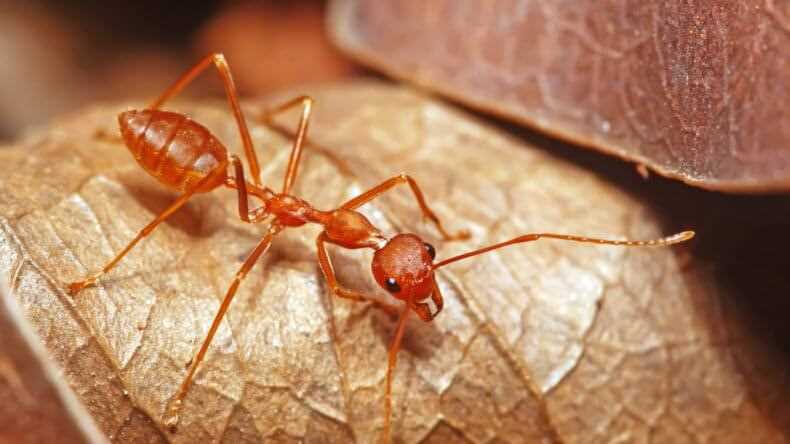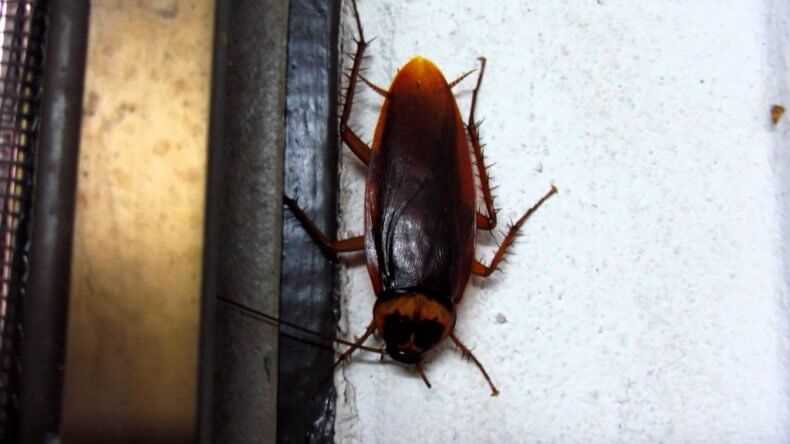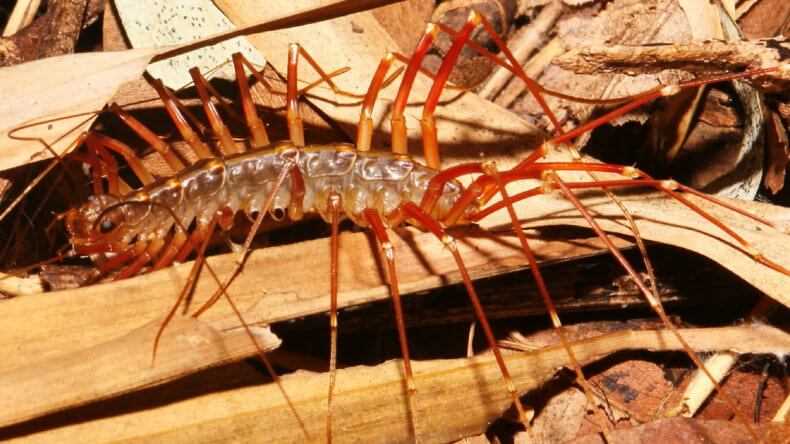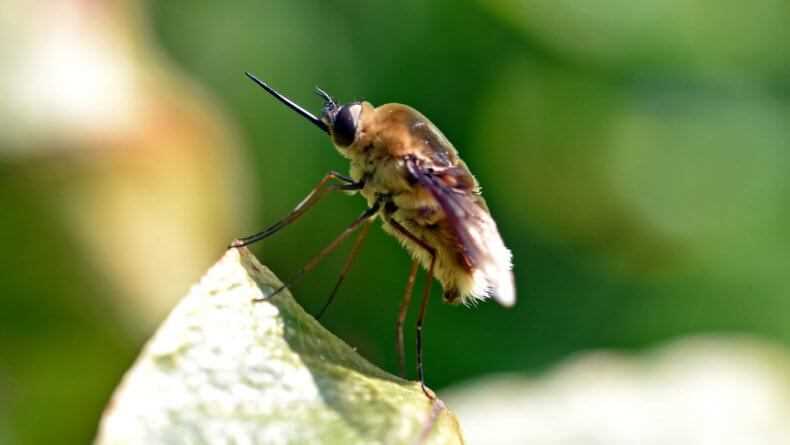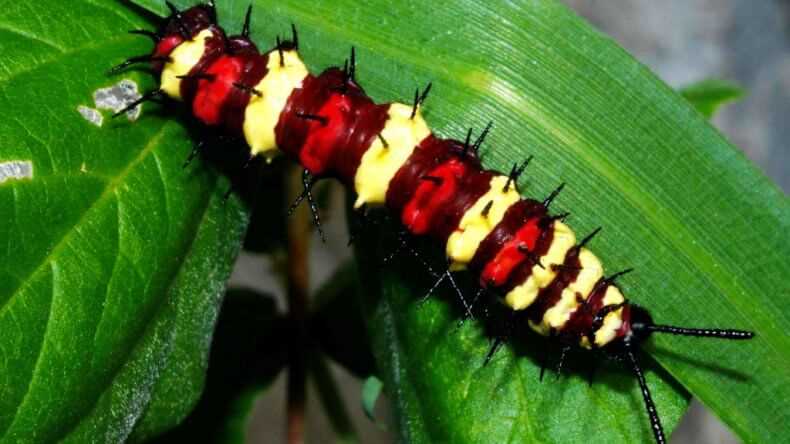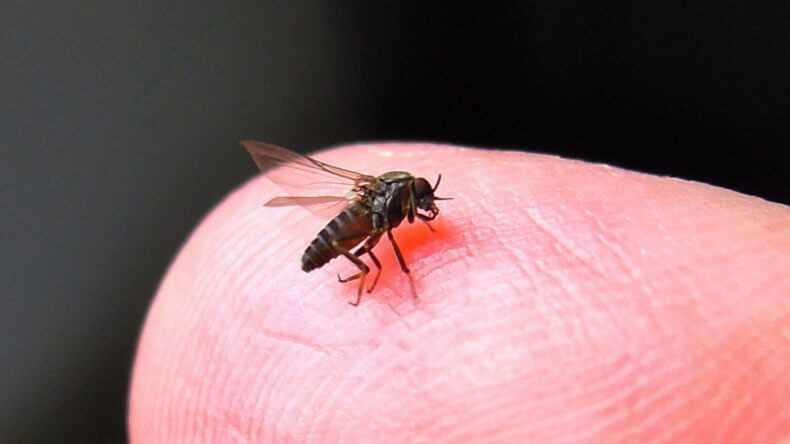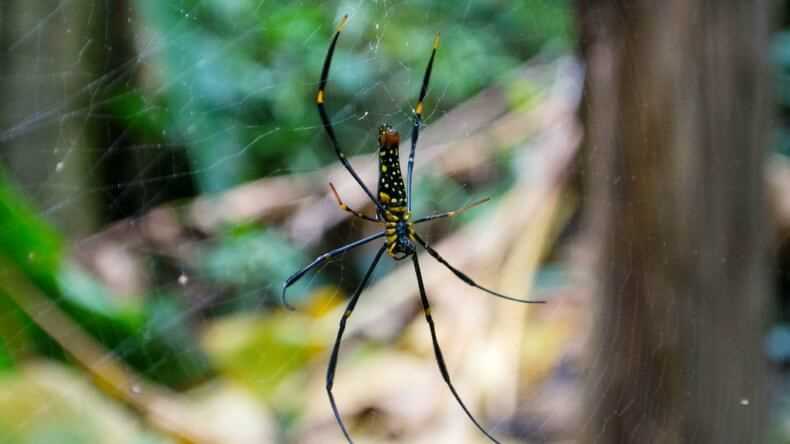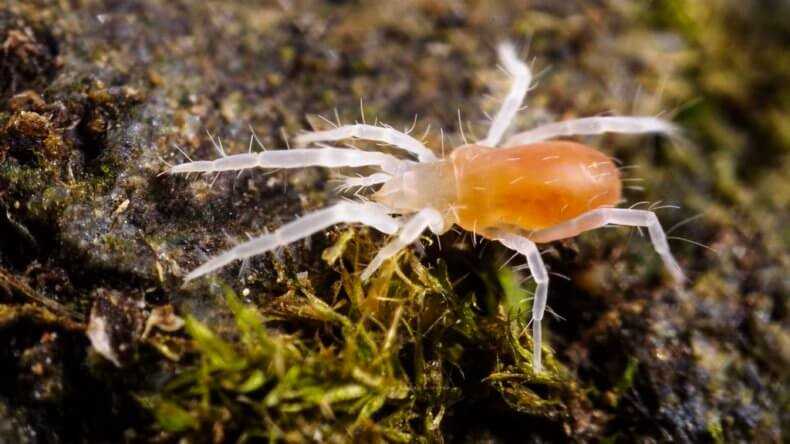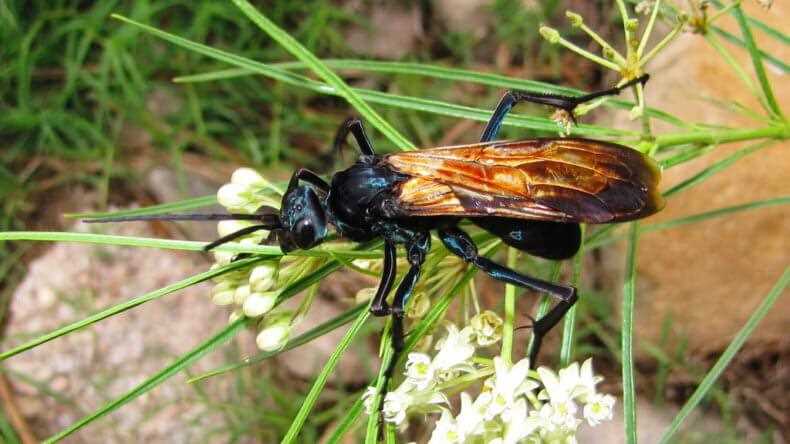The humid tropical climate of Thailand attracts not only tourists. It really is a paradise for a variety of insects, to the neighborhood of which Thais got used long ago, and some of them are even eaten. But for farangs harmful insects in Thailand may be an unpleasant discovery, the meeting with which, at best, can raise a lot of squealing, at worst – spoil the whole long-awaited vacation because of the introduction of dangerous infections in the body after the bite. About other dangers of Thailand, waiting for tourists at every step, read here.
Mosquitoes (mosquitoes)
.
Unbelievably, the most dangerous insects in Thailand are mosquitoes (otherwise known as mosquitoes). That’s because malaria is universally eradicated in Europe, but in Southeast Asia it thrives. Fortunately, these bloodsuckers avoid the scorching rays of Thai sun, so they appear closer to the evening after the fall of air temperature. However, in shady parks and near bodies of water, they can attack around the clock.
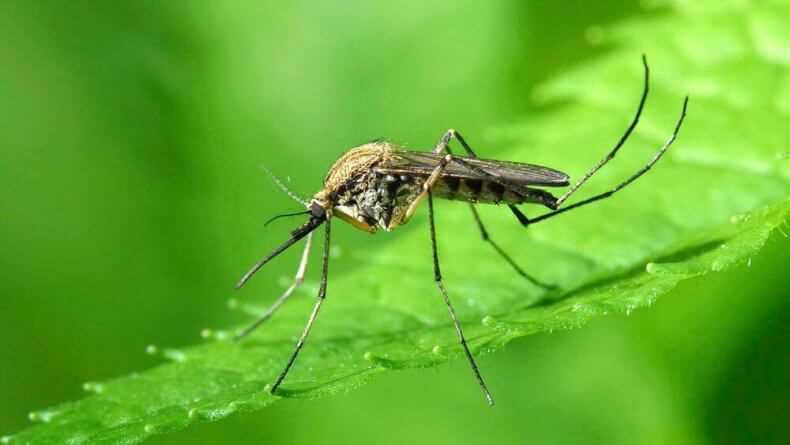
The rule of thumb in all Thai dwellings is mosquito nets, canopies over beds. In every supermarket you can find a wide range of repellents, sprays, ointments, fumigators. Give preference to local products as the most tropical-friendly. If you are allergic to them, at least use “Zvezdochka” balm.
Ants
.
Ants in Thailand are a real scourge for slobs. Just once not removing crumbs from the table, your house will be occupied by their hordes. Even if you lock all of your food in the fridge, there’s no guarantee that they won’t wind up in badly sealed tins of cereal or a bag of chips with half-eaten potato chips.
The worst part is that they leave behind odorous marks that are extremely difficult to destroy. Uninvited guests will return again and again along these trails. Not finding food, they will continue to scout and climb everywhere: bedding, linen closets. The most effective way to destroy an entire colony of ants in an apartment is to find and destroy their nest along with the queen.
Ants are hard to spot and actively defend themselves, so insect bites in Thailand for the most part refer to them. The place of the bite should be smeared with an alcohol infusion, and if you are allergic, it is better to take antihistamines. But if you feel ill, don’t hesitate to visit your doctor.
Purchasing crayons and dichlofos may not give results in the fight against ants, so when renting accommodation in Thailand it is better to immediately agree with the agent to conduct a local chemical warfare (pest control). But after that all household items should be washed or dry-cleaned. So you don’t get poisoned yourself.
Cockroaches
.
The cockroaches in Thailand are not the reddish little insects you find in our country. They look more like fat beetles of a nauseating kind. Absolute pacifists by nature, they can fly. They prefer to appear at night. Like ants gravitate to places of accumulation of food waste and water, as well as leave tags and carry out large-scale occupation. You can judge the respectability of a place by their presence or absence. Have you seen cockroaches? Move out or bill the owners. It is almost useless to water them with repellents – they are too big, they hardly react to poisons, and instead of one killed one three will come (to finish the corpse). The most effective method of control is traps. Oddly enough, but edible insects in Thailand are just cockroaches. For gourmets, this exotic is just right for Thai beer!
Flycatchers
.
This insect is probably the most disgusting to tourists. A kind of fat worm on a hundred articulate legs. They are common throughout Thailand. During the rainy season, they tend to get into homes, crawling on the walls, hiding in clothing or shoes. They don’t attack people on purpose, but they have a powerful defense weapon: on each leg there is a spike with a poisonous gland. Fortunately, most Thai flycatchers are not deadly. But they can leave a chain of itchy dots after running across exposed skin. It is common for Thais to shake out their underwear, shirts, or shoes before putting them on. Do not neglect this rule.
NON-ORDINARY TIP! Evicting colonies of ants and cockroaches can be done in a very fancy way. Get a house flycatcher! This vile-looking insect will devour them one by one. And the survivors escape like rats from a sinking ship. But then they’ll have to get rid of her as well.
Flies
.
Trivial flies are the most common insects in hotels in Thailand. They are treated with the same methods as in Russia: dichlorvos, fly traps, electric traps, sticky tapes, and slippers.
Caterpillars
.
The most obnoxious caterpillars of Thailand are small insects with brightly colored skin, and covered with villi. This is their protective tool. They are like a warning of danger. Take as a rule not to touch anything that has a bright coloring. When such specimens come in contact with exposed skin, blisters filled with fluid (hives) appear on it. They can itch for a week, and look quite unattractive.
Gnats
.
In rural Thai homes, cobwebs are not uncommon on the walls. Part of these gray cocoons are nesting flies, where they lay eggs, from which small worms later hatch, and at the end of the cycle – gnats. There is no harm from them, except aesthetic discomfort. The most effective method of control is a broom and a vacuum cleaner.
Scorpions
.
The most poisonous insects in Thailand are scorpions. They are common inhabitants of jungles and gardens, can live under stones and in crevices of boarded buildings. They prefer relatively dry places, so in rainy season they can also get into houses. The warmer it is outside, the faster they move. They are essentially predators, but humans are not part of their food chain, so a scorpion bite is always the result of inattention and mouthiness. The most dangerous scorpions in Thailand are small. They are as small as the palm of your hand, and for some reason there is less venom in their spike on their tail.
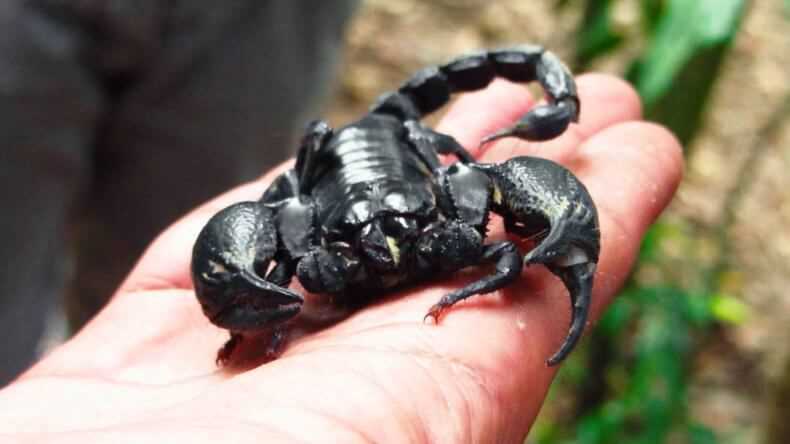
Spiders
.
Spiders of Thailand are less venomous than scorpions. But they are also predators, so their venom is effective against all living organisms. The reasons for the bites are the same – to interfere with their privacy and defense. Their results are: pain, local inflammation, muscle spasms. Deadly spiders are not found in this country. We recommend to remember the appearance of the aggressor and to contact the doctor. He will find an antidote and help in the fight against allergies.
Ticks
.
These bloodsucking parasites live where they do in Russia: in forests, parks, preferring dense, shaded grass where moisture is preserved. Ticks in Thailand can be carriers of encephalitis and borreliosis. They purposely seek contact with warm-blooded organisms and are sucked up absolutely painlessly. High shoes, pants, long sleeves, a waist belt and a tightly buttoned collar are quite effective measures to prevent them from attacking. After a walk in the national parks, jungle, it is better to undress and shake out your clothes. Inspect your body, paying attention to the armpits, groin – wherever the skin is thinner and there are more sweat glands. A sucked mite is removed along with its head. It is best done in a medical facility.
Tarantula hawks
The tarantula hawk, which belongs to the road wasp family and has a black coloration with orange wings. It is considered the largest wasp (up to 5.4 cm long) and the most dangerous in the whole world. This insect “on board” has quite a formidable weapon – a large poisonous sting, which it, unlike other wasps, can use indefinitely! Its sting causes very painful sensations in humans.
The road wasp can be encountered, based on its name, on roads and trails, as well as near forested areas. There have been cases that this wasp has stung passing bikers, thereby provoking Truck accidents. Therefore, when traveling on such transport, it is recommended to wear thick clothing that covers the entire body.
If you have encountered a tarantula hawk, there is no need to panic. Just remember to take precautions when encountering native bees and wasps. Don’t make any sudden movements and calmly try to get as far away from it as possible.
Bitten? See a doctor right away.
Insect venom most often cannot kill a person. But bring a lot of trouble – can. One of them is an allergic reaction. It can develop rapidly (this is called anaphylactic shock), when a person falls into a coma. Only an ambulance team can get you out of it, and time counts literally in minutes. Another manifestation – Quincke’s edema – develops gradually, but it can also eventually lead to anaphylactic shock. Therefore, you should not delay a visit to the doctor if there are the following signs:
- Puffiness and swelling at the bite site increases.
- Weakness and fever appear.
- Pulse rate increases but becomes barely detectable.
- High blood pressure increases.
Tick attacks do not always lead to encephalitis, because carriers of this disease are not more than 10 percent of the insects. If, however, you experience muscle weakness, fever, headache, nausea and vomiting, be sure to consult a doctor.
Video: insect-fighting tips in Southeast Asia
Read More:- Mosquitoes in Thailand – what they carry and how to protect against them.
- Snake Varieties in Thailand and First Aid for a Snake Bite.
- Thailand's main dangers for vacationers.
- How to Avoid Jellyfish Bites in Thailand.
- What to do if you step on sea urchin needles – tips.
- Shopping in Hua Hin – Hypermarkets, markets, stores, malls.

